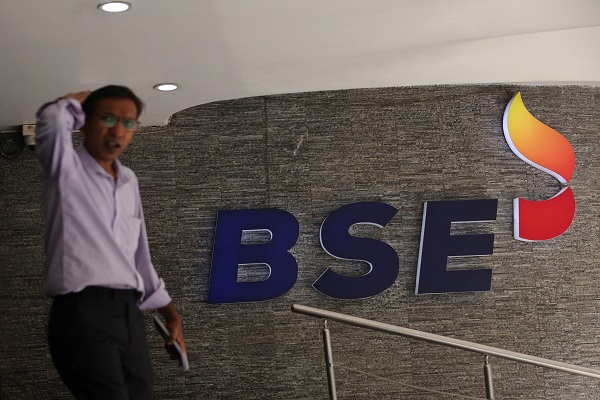Travel Food Services coming with IPO to raise upto Rs 2106 crore

Travel Food Services
- Travel Food Services is coming out with a 100% book building; initial public offering (IPO) of 1,91,42,985 shares of Rs 1 each in a price band Rs 1045-1100 per equity share.
- Not more than 50% of the issue will be allocated to Qualified Institutional Buyers (QIBs), including 5% to the mutual funds. Further, not less than 15% of the issue will be available for the non-institutional bidders and the remaining 35% for the retail investors.
- The issue will open for subscription on July 7, 2025 and will close on July 9, 2025.
- The shares will be listed on BSE as well as NSE.
- The face value of the share is Rs 1 and is priced 1045 times of its face value on the lower side and 1100 times on the higher side.
- Book running lead managers to the issue are Kotak Mahindra Capital Company, HSBC Securities and Capital Markets (India), ICICI Securities and Batlivala & Karani Securities India.
- Compliance Officer for the issue is Neeta Arvind Singh.
Profile of the company
Travel Food Services is the leading player in the fast-growing Indian airport travel quick service restaurant (Travel QSR) and lounge (Lounge) sectors based on revenue in Fiscal 2025, with a market share based on revenue (including Associates and Joint Ventures) of around 26% in the Indian airport travel QSR sector and approximately 45% in the Indian Airport Lounge sector in Fiscal 2025. The company’s Travel QSR business comprises a range of curated food and beverage (F&B) concepts across cuisines, brands and formats, which have been adapted to cater to customers’ demands for speed and convenience within travel environments.
It offers quick service formats adapted for the travel environment, such as fast food, cafes, bakeries, food courts, and bars, mainly within airports as well as at select highway sites in order to serve travellers’ demands for speed and convenience. It works closely with its regional Indian and international brand partners to adapt their F&B concepts for the travel environment. It achieves this by adjusting store layouts, streamlining menus, adapting merchandising and store designs, and developing travel friendly takeaway packaging, among other strategies. In addition, it has developed a portfolio of in-house brands through close collaborations between its experienced culinary, marketing and operations teams and based on its understanding of the unique needs of travellers and the travel environment.
Its F&B brand portfolio and presence across key airports in India position it well to benefit from the expected growth in the Travel QSR sector in airports in India. Such growth is supported by the rising propensity to spend on F&B, driven by increasing air travel, higher disposable income and extended dwell times during airport travel, as well as growing number of low-cost carriers (LCCs). The Indian Airport Travel QSR sector is expected to grow a CAGR of 17-19% from Fiscal 2025 to 2034, to reach a size of Rs 170-180 billion.
Proceed is being used for:
- Achieving the benefits of listing the Equity Shares on the Stock Exchanges
- Carrying out the Offer for Sale of Equity Shares by the Promoter Selling Shareholders
Industry Overview
Airport lounges offer a range of services that are designed to provide comfort and convenience to travellers. Lounges focus on providing wide range of high-quality food options along with a comfortable seating arrangement for the customer. Lounges can be broadly bundled into food and beverage, space to relax or work, and ancillary facilities such as shower, wellness services, entertainment, etc. These services can vary based on airport, airline or class of service. Lounges in India have grown significantly over the past five years, driven by the development of new operational airports, which increased to 138 as of September 2024 from 77 in FY16. Other factors such as partnerships with credit card companies and loyalty programmes have contributed to the growth as well.
Meanwhile, F&B revenue, which is the revenue earned by airports through concession agreements for operating F&B outlets, is one of the key components of the non-aeronautical revenue for airport operators. It has been growing at a healthy pace for key domestic airports. For Delhi International Airport and GMR Hyderabad International Airport, F&B revenue, which forms 8-10% of their total non-aeronautical revenue, logged a significant 15% CAGR between FY19 and FY25. The growth is attributed to increased passengers’ propensity to spend on F&B. This also shows that passengers are spending on non-travel-related activities such as eating at the airports. F&B operators at the airports have also customised their offerings as per the customer needs, in turn, enhancing passengers’ experience.
Further, Airport travel QSR and lounges are the key and fast-growing sectors in airport retail in India which together account for 35.00% (Rs 64 billion) of the total airport retail market in India as of FY25. Looking ahead, the airport travel QSR industry is expected to sustain the strong growth momentum, supported by the rising propensity to spend on F&B, driven by increasing air travel, higher disposable income, extended dwell times during airport travel, as well key supply-side factors such as customised product offerings, and improved airport infrastructure. In the long term, the industry is expected to sustain the growth momentum and register a CAGR of 17-19% from FY25 to FY34 to reach a size of Rs 170-180 billion by the end of FY34.
Pros and strengths
Leading player in the Travel QSR and Lounge sectors in Indian airports: The company was the leading player in the Travel QSR and Lounge sectors in airports in India based on its revenue in Fiscal 2025. It operated the largest network of Travel QSRs in India, as of March 31, 2025, with 384 of its 413 operational outlets being situated in airports, and the remaining in highway sites. Also, it had a market share of around 26% based on revenue (including Associates and Joint Ventures) in the travel QSR sector in Indian airports in Fiscal 2025.
Strong expertise in handling the distinct challenges of F&B in the operationally complex and highly secure airport environment: Since the opening of its first Travel QSR outlet in 2009, it has cultivated a deep set of capabilities and processes that enable it to efficiently execute in and address the various operational challenges posed by the operationally complex and highly secure airport environment. These capabilities have been developed and honed through its 16 years of experience in the travel industry and enhance its value proposition for airport operators and the competitiveness of its bids for airport concessions.
Diversified portfolio of partner F&B brands: Within its Travel QSR business, it represents and operates a wide range of popular international, regional Indian and in-house F&B brands. It had 90 F&B brands licensed from international and regional Indian brand partners, in addition to 37 in-house brands, as of March 31, 2025. This includes international brands such as KFC, Pizza Hut, Wagamama, The Coffee Bean & Tea Leaf, Subway and Krispy Kreme, regional Indian brands such as Bikanervala and Third Wave Coffee, and in-house brands such as Cafeccino, Curry Kitchen, Idli.com and Dilli Streat. Through its in-house brands, it customise its menu options to offer its customers additional options that appeal to local and international palates, while taking into account the requirements of airport operators.
Deep understanding of traveller preferences: The company has introduced a number of innovative solutions within its Travel QSR and Lounge businesses that seek to address travellers’ demands for speed and convenience, while also elevating the overall travel experience for its customers and maintaining operational efficiencies. Its technological innovations have been part of its approach in addressing various pain points faced by travelers and enhancing its operational efficiency. Within select Travel QSRs located in airports, it has introduced self-ordering kiosks, online order and in-airport delivery options and contactless payment systems to accelerate customer servicing time and make ordering more convenient at select locations. Also, it installed grab-and-go fridges to provide travellers with quick pick up options at select outlets.
Risks and concerns
Maximum revenue comes from Travel QSRs and Lounges at the top 5 airports: The Travel QSRs and Lounges at the top 5 airports contributed 85.94%, 88.36% and 90.29% of its revenue from operations for Fiscals 2025, 2024 and 2023, respectively. The average remaining term of its concession agreements at its top five airports for Fiscals 2025, 2024 and 2023, is 3.47 years, as of March 31, 2025. Such concession agreements may be renewed through the tender and bidding process or through negotiations among the relevant parties. There is no assurance that it will be successful in renewing these key concessions when they expire or that they will not be subject to early termination, whether due to changes in contracting entities or otherwise. Termination of its concession agreements in relation to or a decrease in passenger traffic in such airports could have a significant impact on its revenue.
Depend on its relationship with its brand partners to franchise their brands: The company depend on its relationship with its brand partners to franchise their brands, with revenue from brand partners accounting for 54.37%, 54.44% and 54.06% of its revenue from Travel QSR for Fiscals 2025, 2024 and 2023, respectively. Its brand partners may terminate their franchise agreements with it or request to amend key terms of the relevant agreements, such as increasing franchising fees or royalty fees, subject to the terms of such agreements, or opt not to renew their franchise agreements with it upon their expiry for various reasons that may be outside its control.
Derive significant revenue from Lounge services: The success of the company’s Lounge business is dependent on its long-term relationship with its Lounge Partners, comprising domestic and international airlines, card issuers and networks, loyalty partner programmes, Lounge access programmes and financial institutions. Revenue from Lounge services amounted to 44.93%, 44.65% and 46.14% of its revenue from operations for Fiscals 2025, 2024 and 2023, respectively. Its business may be negatively impacted if it is unable to retain its existing Lounge Partners or attract new ones.
Higher employee attrition rates: The company had employee attrition rates of 58.65%, 61.73% and 66.33% in Fiscals 2025, 2024 and 2023, respectively. It must continue to attract, motivate and retain qualified managers with the qualifications to succeed in the sectors in which it operates as well as adequate frontline staff and skilled labour to operate its outlets. Competition for qualified employees is significant, and there is a risk that it will not effectively manage employee turnover. Any organisational changes, including changes in salaries and wages and other employee benefits that are, or are perceived to be negative, could result in an increased attrition rate. The failure to effectively manage employee turnover rates could negatively impact its sales performance, increase its wage costs, and negatively affect its business, results of operations, financial condition and prospects.
Outlook
Travel Food Services is an Indian airport travel quick service restaurant (Travel QSR) and lounge. The company’s F&B brand portfolio, comprising 117 partner and in-house brands, is in the operation of 397 Travel QSRs across India and Malaysia, as of June 30, 2024. It is leading player in the Travel QSR and Lounge sectors in Indian airports. It has a deep understanding of traveller preferences with a focus on delivering a quality customer experience. On the concern side, the Travel QSRs and Lounges at the top 5 airports contributed 85.94%, 88.36% and 90.29% of its revenue from operations for Fiscals 2025, 2024 and 2023, respectively. Termination of its concession agreements in relation to or a decrease in passenger traffic in such airports could have a significant impact on its revenue. Moreover, the company depends on its relationship with its brand partners to franchise their brands, with revenue from brand partners accounting for 54.37%, 54.44% and 54.06% of its revenue from Travel QSR for Fiscals 2025, 2024 and 2023, respectively. Failure to attract new brand partners or maintain or develop existing ones could adversely affect its business, results of operations, financial condition and prospects.
The issue has been offering 1,91,42,985 shares in a price band of Rs 1045-1100 per equity share. The aggregate size of the offer is around Rs 2000.40 crore to Rs 2105.73 crore based on lower and upper price band respectively. Minimum application is to be made for 13 shares and in multiples thereon, thereafter. On performance front, the company’s revenue from operations increased by 20.87% to Rs 16,877.39 million in Fiscal 2025 from Rs 13,963.22 million in Fiscal 2024. Moreover, the company’s restated profit for the year increased by 27.35% to Rs 3,796.59 million in Fiscal 2025 from Rs 2,981.20 million in Fiscal 2024.
The company generates the majority of its revenue from airports in India and plan to leverage its leadership position in the Travel QSR and Lounges sectors and its strong relationships with airport operators to expand its Lounge and Travel QSR businesses within existing airport terminals and new terminals in airports in which it is present, in addition to expanding into new airports and geographies. It strives to expand its business while delivering operational efficiency, driving earnings and generating operating cash flow. Going forward, the company plans to continue monitoring market trends and customer preferences in India, including at the regional level, and create or franchise new brands for its airport concession agreements and future bids.























